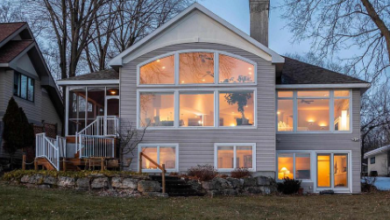
A vital point to consider in sustainable living today is the role of energy efficiency in order to accomplish the homeowners’ goal of smaller ecological footprint and lower utility expenses. Household’s energy production contains several components, heating being the greatest. Fortunately, the technological revolution resulted in a large-scale of energy-efficient heating systems that satisfy all living spaces’ different needs. Understanding the basic elements that define the most appropriate heating system that facilitates the consumption of energy in an efficient manner is a must.
Exploring Different Heating Technologies:
Modern homes can have various heat technologies available, each offering its separate benefits like efficiency, comfort, in addition to environmental impact in terms of sustainability. Electric heating options are becoming more advanced with innovative technologies, offering more flexibility and efficiency. When exploring different heating technologies, homeowners may inquire about the availability of non condensing boiler grant, which can help offset the initial investment and promote the adoption of more energy-efficient solutions. Meanwhile, traditional options like gas furnaces and boilers prevail in their reliability and affordability, especially for regions with natural gas availability.
Assessing Your Home’s Heating Needs:
Concerning heating solutions, initially, evaluate your home’s heating demands in detail. For example, characteristics like climate, the level of insulation, square footage, and the number of occupants are all major factors to consider when choosing a heating system. Carrying out an in-depth energy audit or consulting experts on the matter would offer critical information about the performance of your house and can pinpoint areas for improvement.
Understanding Energy Efficiency Ratings:
When you choose heating systems look at energy efficiency ratings like AFUE (Annual Fuel Utilization Efficiency) for furnaces and boiler or SEER (Seasonal Energy Efficiency Ratio) for heat pump and HSPF (Heating Seasonal Performance Factor) for electric heat pump. These ratings map the system’s ability to convert energy, such as fuel and electricity, into heat, and the higher the number, the higher the efficiency. Besides the fact that your carbon footprint would decrease if you choose high-efficiency rated heating systems, this also helps you make long-term cost savings by reducing your utility bills.
Evaluating System Integration and Control Options:
In the same line of thinking, it is equally crucial to assess the energy efficiency and performance, as well as integration and control aspects of different heating systems. Smart thermostats, zoning systems, and programs that enable suitable temperature regulation also allow to cut on energy use, considering the quantity of the people in space, usage patterns, and preferences. In addition, some heating systems may offer compatibility with home automation platforms where one can control and sync the smart home devices to increase the convenience and efficiency in their dwelling.
Considering Lifecycle Costs and Environmental Impact:
Considering heating system evaluation, it is very valuable to go far more than low initial cost, and also keep in mind the system life-time expenditures and its ecological footprint. We should look at installation costs, expected maintenance schedule, and expected lifespan of the product, which could be addressed with different kinds of incentives or rebates. As well, examine the environmental footprint of various heating fuels, taking into account their respective global warming potential, resource depletion and local air pollution emissions. Using solar panels, geothermal, or high-efficiency systems can be an excellent choice in case you want to minimize your carbon output to the atmosphere. In this way, you can help to make the world greener.To wrap it up, the choice of energy-efficient heating systems for homes of this time requires a thorough look into among others the heating requirements, energy efficiency rating, technology possibilities, control capacities, and life cycle costs. Through the applying of efficiency, comfort and sustainability, homeowners will thus be able to not only to live in a healthier and environment friendly place but also being able to do so in a long-termed way. Either a furnace of the past, a novel heat pump, or a radiant heating system, and that would be successfully or proudly investing in efficient heating that is good for both residents and the environment.




